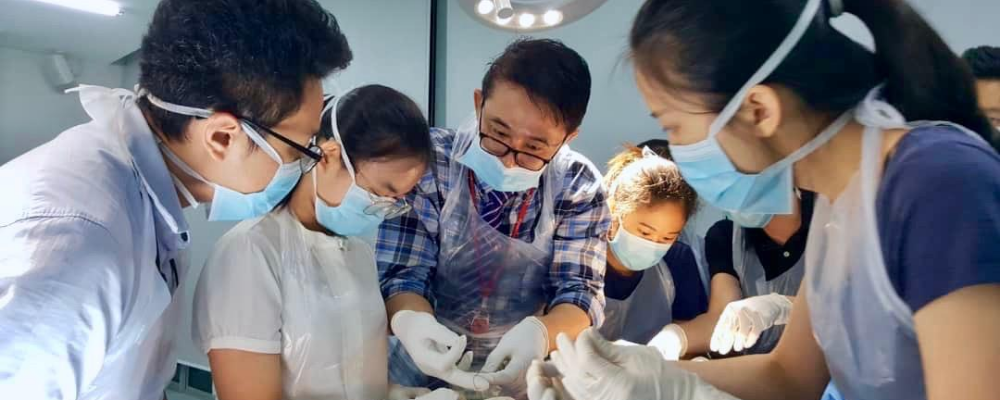Bachelor of Medicine and Bachelor of Surgery (M.B.B.S)
(R2/721/6/0053)(01/27)(MQA/FA5540)
The Bachelor of Medicine and Bachelor of Surgery (M.B.B.S) programme at UTAR aims at preparing its graduates to become caring, competent, and evidence-based doctors.
Programme DescriptionBachelor of Medicine and Bachelor of Surgery: Full course nameR2/721/6/0053: Course code01/27: Expiry date (month/year)MQA/FA5540: Accreditation status and reference code
The development of Bachelor of Medicine and Bachelor of Surgery (M.B.,B.S) course curriculum is centered around the following nine (9) learning outcomes:
PLO 1. Apply knowledge of basic medical sciences in their clinical practice
PLO 2. Demonstrate critical thinking, problem solving and research skills
PLO 3. Formulate appropriate diagnoses and patient management plans based on history, physical examination and diagnostic investigations.
PLO 4. Demonstrate interpersonal skills to effectively communicate, collaborate and empathise with patients, communities and colleagues
PLO 5. Work independently, collaboratively and professionally through effective communication skills
PLO 6. Use of appropriate information, multimedia and applied technology for study and clinical decision making
PLO 7. Apply appropriate numeracy skills for data management and interpretation for effective clinical decision-making
PLO 8. Demonstrate leadership, autonomy and accountability in health care delivery
PLO 9. Demonstrate commitment to lifelong learning and continuous professional development for personal and career advancement
PLO 10. Apply entrepreneurial skills to enhance patient care under different challenging circumstances
PLO 11. Exhibit to professional, ethical and social responsibilities communities in health care delivery
|
Trimester/ Year |
Trimester 1
|
Trimester 2
|
|
Year 1
|
Cell & Molecular Biology General Pathology I General Pathology II Anatomy & Physiology I Anatomy & Physiology II Basic Genetics & Biochemistry Cardiovascular System Respiratory System |
Gastrointestinal System Renal System Musculoskeletal & Articular System Neurological System & Skin Endocrine System & Metabolic Disorders Haematology Sun Zi's Art of War and Bussiness Strategies Reproductive System Integrated medical sciences |
|
Year 2
|
Managing Research Process and Statistical Analysis Professional, Ethical and Legal Issues in Malaysian Medical Practice Epidemiology & Public Health Traditional & Complementary Medicine Principles Community Health Project 1 and Leadership development Community Health project 2 Laboratory and Pathology Medicine
|
Hubungan Etnik (for local students) Tamadun Islam dan Tamadun Asia (TITAS) Social Entrepreneurship Project Pharmacology Nursing Care, First Aid and Cardiopulmonary Resuscitation (CPR) Hospital Infections and Patient Safety Basic Clinical Skills Elementary Clinics Elective Posting:Para-clinical |
|
Year 3
|
General Surgery Year 3 Obstetrics and Gynaecology Year 3 Internal Medicine Year 3 |
Elective Posting : General Practitioner Paediatrics and Neonatology Year 3 Orthopaedics Surgery and Traumatology Year 3 |
|
Year 4
|
Radiology and Medicine Psychiatry Dermatology Forensic Medicine Public Health and Community Medicine Rehabilitation Medicine |
Family Medicine Opthalmology (Eye) Otorhinolaryngology Critical Care Medicine Emergency Medicine Elective Posting: Clinical |
|
Year 5
|
General Surgery Year 5 Paediatrics and Neonatology Year 5 Obstetrics and Gynaecology Year 5 |
Orthopaedic Surgery Year 5 Anaesthesiology Internal Medicine Year 5 Integrated Clinical Science : Evidence Based Practice |


